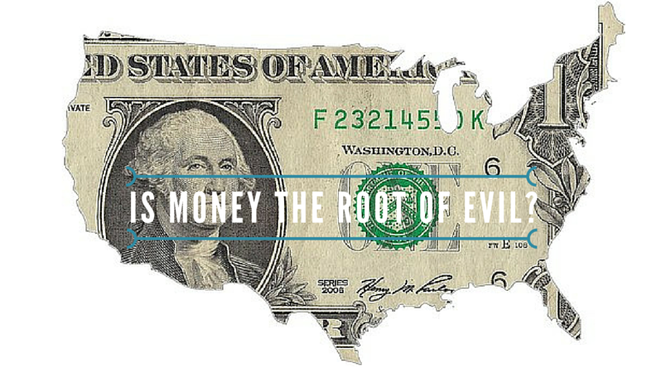Confronting 4 Common Misconceptions about Money and the Bible
Money is a hot-button topic in our culture, and it is not uncommon for people to become uncomfortable or defensive when it is discussed. The Bible is not silent about money or possessions, with over 2300 verses giving instruction and admonition on how to honor God and others with finances. With everything that has been written and spoken about on the topic of money, there are many misconceptions about what the Bible says and how we apply what is written. In this blog post we are going to cover four of those misconceptions and bring clarity to what the Word of God is saying.
Common misconception #1: Money is the root of all evil.
We see in the verse above that money is not evil, but the love of money is the root of all sorts/kinds of evil. We must be aware that neither money nor the possessions that it can buy become idols in our hearts. Money is amoral, meaning that it is neither good nor bad. It is a tool that has no power in itself, but the effect of it can be beneficial or detrimental. It is very similar to a hammer, which can be used to build or to tear apart. Unlike a hammer, though, the effects of it may not be noticeable right away.
Common Misconception #2: God only claims 10% of “our” finances
Psalm 24:1 says, “The earth is the Lord’s and everything in it."
God owns everything, and we are stewards of what He has entrusted to us. A definition of a stewardship is carefully and responsibly managing something entrusted to one’s care. There are many views on the tithe and offering, with the most common being that 10 percent of a Christian’s income should go to the local church for the spreading of the Gospel. Biblical stewardship is understanding that God is the owner of everything, and managing those resources in a way that brings glory to Him. The remaining 90% of the resources that we have are to be used in a way that honors God.
In Luke 14:33 we see Jesus address the concept of stewardship (God owning everything) and idolatry in this way: "So then, none of you can be My disciple who does not give up all his own possessions.” We know from Scripture that this did not mean everyone had to live communally or literally give up everything they possessed, but to relinquish control of their money and possessions to God through His principles and by the leading of the Holy Spirit.
Common Misconceptions #3 & 4: Prosperity is God’s will or it is more godly to live in poverty.
Godliness is not inherent to either trait. While being rich financially can be a blessing, being prosperous is not a given and right to Christians. Throughout the Proverbs and the rest of the Bible we see wealth creation coupled with wisdom and good stewardship as a path that can lead a person to become financially prosperous. That being said, it would be a contradiction for voluntary poverty to be more godly. This is because the Bible gives so much instruction on how to manage and invest money properly and to leave an inheritance for the coming generations. Not every Christian is called to be wealthy, as Jesus said: “No one can serve two masters, for either he will hate the one and love the other, or he will be devoted to the one and despise the other. You cannot serve God and money.” (Matthew 6:24 ESV). The key is to learn contentment and to follow God’s leading on how we are to earn and spend the money He has entrusted to us.
Check back soon as we discover what God has to say about finances and how we can apply those truths to our lives.


 RSS Feed
RSS Feed